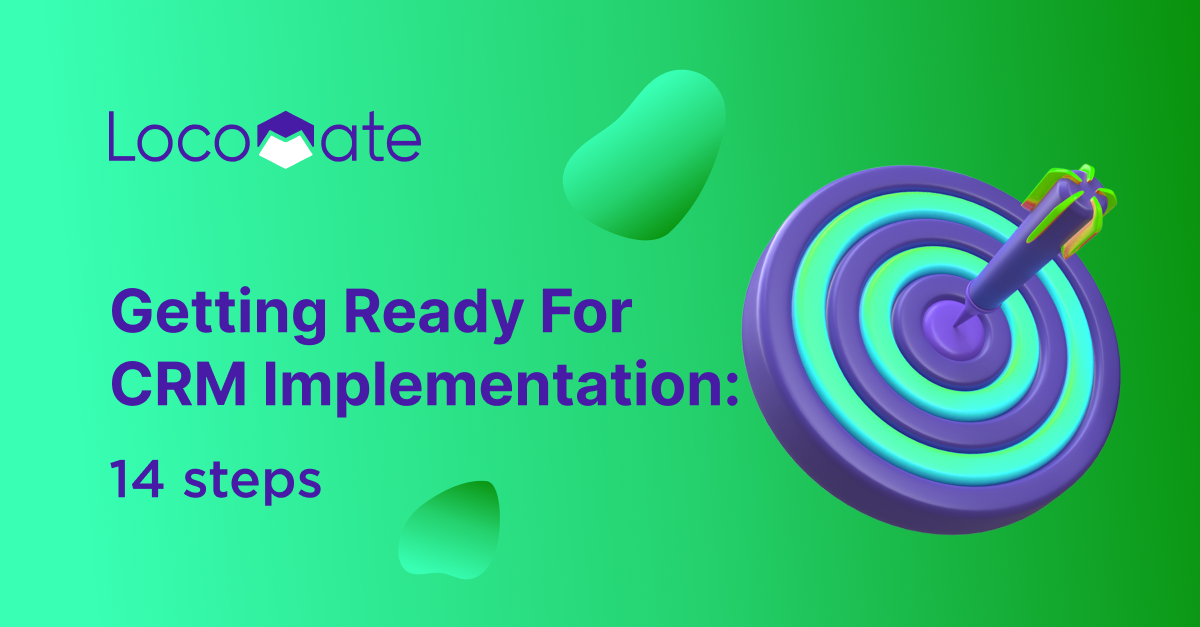How to choose a perfect CRM solution: pros and con
An excellent solution for managing client projects should be very convenient, flexible and reliable. You can integrate two separate tools to manage each process, or use one tool to manage both processes. A CRM with project management functions enables you to manage your project and customer data on a single platform with no need to switch between applications all day. Here are ten things to consider when you are choosing a CRM software for project management.
- Ease of use
The software you choose should have a simple implementation process and a user-friendly interface for your employees. Also, make sure that the tool you choose is appropriate for your current business processes.
- Customizability
Since every business is unique, sometimes a one-size-fits-all approach won’t help. A customizable solution will help you accurately reflect your needs. For example, a project management feature such as customizable task statuses can help you set up a workflow based on your business processes.
- Working with clients
Choose a solution that allows you to save and process customer data. After all, one of the most important functions of CRM is to learn more about the client and aggregate all the information in one system.
- Document and data management
The tool you choose should allow you to easily manage documents and analyze customer information. In addition, the software should allow the creation and exchange of knowledge bases, user manuals and adaptation documents. This way, you can share up-to-date information with your teams and customers if necessary.
- Client Management
Customer management functions help companies track customer interests. It allows you to analyze and categorize your entire customer base to identify loyal customers. This way, you can create a CRM project plan focused on retaining your most valuable customers or take the ones who are still thinking, to the next step.
- Visual project management
Visual project management helps teams better understand deadlines, tasks, and goals. All you need is a one-time look to see how projects and customer relationships are progressing. This will help you:
- Centralize communication and keep all information at hand
- Make quick decisions based on accurate data
- Identify any potential bottlenecks in workflow
- Sales Funnel management
The CRM project management tool you have chosen should have features such as tracking potential customers, pipeline management, sales dashboards, and more. This will help you determine how quickly sales representatives can convert potential customers into sales. And if you want to increase sales efficiency, carefully study your CRM project management tool to find out what works and what doesn’t.
- The possibility of communication
Having a system with chat functions can help businesses get rid of the team fragmentation. Group members should be able to leave comments, attach documents and make video calls without leaving the tool. This makes communication easier, as you don’t have to switch between apps all day.
- Data-driven Analytics
The software you choose should provide you with detailed reports and real-time data. This will help you identify bottlenecks, monitor employee productivity, and make sure teams are meeting company goals.
- Integrations
Well-integrated systems ensure proper data flow and optimized workflow management across platforms. Choose a software solution that can be integrated with other tools in your workspace. This way, you won’t have to give up your favorite apps.
Using a universal CRM to control it all
Before you decide which CRM project management software you want to use, here are some pros and cons of using a comprehensive tool. That’s why CRM can be good for you:
1. Better data management
Having all customer and project data on one platform makes it easier for teams to access information when they need it. Your team won’t have to spend the whole day switching between applications. Moreover, the universal tool offers a single source, ensuring that your project and customer teams rely on the same data when making important decisions. They are less likely to make mistakes or face misunderstandings.
2. Improving results
Let’s say your software development team is creating new features for a dating app. Meanwhile, the marketing team is building a knowledge base about new features. However, your CRM shows that customers complain about constant application failures. Your customer service team can use CRM features such as customer feedback tracking to turn requests into tasks for the project team. And your marketing team can release relevant content about these fixes before focusing on new features. This will save you a lot of time and effort, as you will be able to quickly determine what is important to the client and focus on this functionality.
3. Saves time and money
Using a single application for both CRM and project management means that you don’t have to spend a lot of money on licenses for multiple applications. In addition, you won’t have to spend even more time and money on training employees to use multiple tools. We all know how expensive employee training is!
4. Interdepartmental coordination
Remember that a universal tool provides you with a single source of truth. This helps your project, marketing, sales, and customer service teams come to a common understanding of customer needs and project progress. It also allows you to create a unified task management and reporting system that helps groups collaborate with ease.
Obviously, having such a tool requires some initial investment of time and money, but it is totally worth it, when it comes to the long-term results expected from your business. If you are still unsure what to choose, reach out to our team for a consultation, and we will help to analyze, which CRM is really needed at your business. And maybe it won’t be as expensive!


